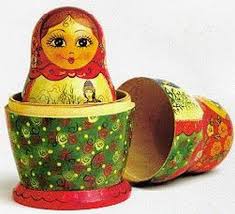 After a weekend of living big in Denver, I am pondering the character of small. Thesaurus.com informs me that synonyms for small include scanty, shrimp, stunted, and insufficient. I talk back to the website: no, small is beautiful. I remember the book Small is Beautiful, written by EF Schumacher in the 1970s and the concept presented there: small is humanizing, big is alienating. Yes, yes, and yes. Several tattered puzzle pieces in my mind slide into place. This is why I gravitate now to small towns and small churches. This is why I try to have a smaller amount of possessions. For me, the experience of small is more humanizing, more authentic. The frantic pace in cities leaves me over stimulated. Big piles of possessions enslave me. Small suits me. Small gives me time, space, peace, qualities that are more important than traditional success, evidenced in big cars, big homes, big cities, big churches.
After a weekend of living big in Denver, I am pondering the character of small. Thesaurus.com informs me that synonyms for small include scanty, shrimp, stunted, and insufficient. I talk back to the website: no, small is beautiful. I remember the book Small is Beautiful, written by EF Schumacher in the 1970s and the concept presented there: small is humanizing, big is alienating. Yes, yes, and yes. Several tattered puzzle pieces in my mind slide into place. This is why I gravitate now to small towns and small churches. This is why I try to have a smaller amount of possessions. For me, the experience of small is more humanizing, more authentic. The frantic pace in cities leaves me over stimulated. Big piles of possessions enslave me. Small suits me. Small gives me time, space, peace, qualities that are more important than traditional success, evidenced in big cars, big homes, big cities, big churches.
I am not the only person thinking that small is beautiful. Small is even trendy: consider the expanding interest in small houses. My version of a small house is my camper, and someday I will travel extensively in a house on wheels. Consider also the trend towards simplifying, which combines getting rid of possessions with reducing energy-zapping activities. Another term for trendy simple living is minimalist. I love these trends, although I am sad that few proponents of simplifying include a spiritual component, the original motivator for a small, simple lifestyle. Monks and other (male and female) cloistered people from all religious traditions sought simple earthly lives to free them for divine pursuits. Small clears the mind and soul for higher pursuits, which is why small will be unsatisfying in the long run until a spiritual component evolves within the cultural trend. In the end, it is the godhead we seek and complex lives drive us further away while simpler, smaller lives reveal a threshold. In that, I find hope and beauty.
Next: Small is High-Tech and Small is Low-Tech


